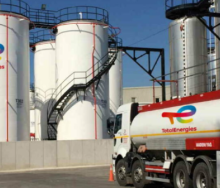Job losses caused by the closing of coal-fired power plants, aimed at decarbonising South Africa’s economy, will be dwarfed by the job losses that could stem from export levies such as the European Union’s Carbon Border Adjustment Mechanism (CBAM).
These levies, which seek to tax carbon emissions associated with imported products at the same level as local emissions, will have a catastrophic impact on exports like the Western Cape’s high-value horticultural trade, André de Ruyter, former CEO of Eskom, warned at the deciduous fruit grower organisation Hortgro’s technical symposium in Somerset West.
“South Africa is one of the most carbon-intensive countries in the world. It has 1,5 times the carbon intensity of China and double the carbon intensity of the global average and a lot of this carbon is contained in our export products,” said De Ruyter, currently a Senior Fellow at the Yale Jackson School of Global Affairs in the United States.
“What this means is that we emit, as a country, a significant amount of carbon in the manufacturing and production of goods we export.
“This is also true for agricultural products. If you look at the value chain that applies to agriculture, including refrigeration and transportation, and processing such as canning, you see very significant electricity usage. Because of Eskom’s carbon footprint, there is a significant carbon footprint for those manufactured goods as well.”
De Ruyter, who joined the symposium online from New Mexico, pointed out that the European Union’s carbon tax is currently 80 euros per tonne of carbon dioxide while it is only three euros in South Africa.
The balance of taxation would be added through the CBAM.
He warned that laws in the United States positing similar legislation are unlikely to be dropped should Donald Trump be elected president of the country later this year as the Bill in question enjoys bipartisan support.
He said that, while the job loss projections associated with the shutdown of coal-fired power stations amounted to between 60 000 and 90 000, similar losses in the automotive industry that could result from the CBAM amounted to 1,5 to 2 million.
Also, studies funded by the German government estimated that, if the energy transition to a decarbonised economy was planned properly in South Africa, it could result in a net jobs gain of 70 000 to 100 000.
He said during his tenure as Eskom CEO, he was approached by a motor vehicle manufacturer and an aluminium exporter asking for access to clean energy because of the effect the CBAM would have on their bottom line.
Implementing a staged shutdown plan for Eskom’s thirsty coal-fired power stations could also liberate 170 billion litres of water by 2035, which would be invaluable for agriculture and food security.
He urged farmers to urgently find ways to decarbonise their own production as much as possible.















